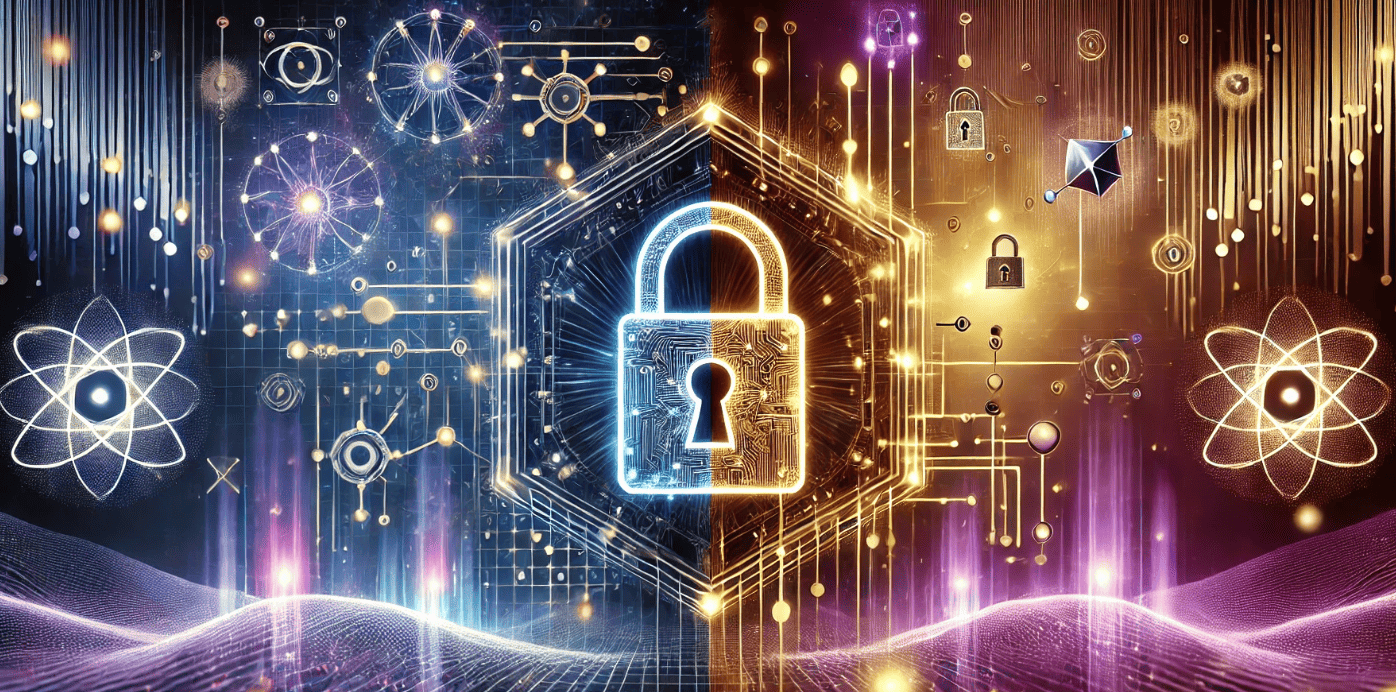Researchers Say Here’s How to Prepare Now For Post Quantum Cybersecurity

Insider Brief
- Quantum computing poses a significant threat to current encryption systems like RSA and ECC, necessitating a shift to post-quantum cryptography (PQC), according to researchers from the Indian Institute of Science.
- Algorithms such as Shor’s could enable quantum computers to break RSA and ECC, which secure critical data for industries like finance and government.
- The researchers emphasize a multi-layered approach to mitigate risks, including robust policies, global collaboration, hybrid cryptographic models, and workforce development.
Quantum computing’s rapid advance demand more than just new technologies — it requires a global, multi-layered response to secure the digital landscape, according to a team of researchers, who offer five steps to secure data in the quantum future.
The team writes that as quantum computing advances, it threatens to undermine encryption systems like RSA and ECC, which secure communications and protect critical data. RSA (Rivest–Shamir–Adleman)
RSA, one of the first public-key cryptosystems that is widely used for secure data transmission, relies on the mathematical difficulty of factoring the product of two large prime numbers. Elliptic Curve Cryptography, or ECC, another form of public-key cryptography, uses the properties of elliptic curves over finite fields instead of large prime factorization.
The study by the Indian Institute of Science in Bangalore researchers emphasizes that the shift to post-quantum cryptography (PQC) requires not only technical innovations but also a coordinated strategy across policy, international collaboration, and continuous research.
The researchers, including Simran Kaur and Rajat Singh, argue in their paper, Cybersecurity in the Age of Quantum Computing: Preparing for the Next Wave of Threats, that “the transition to quantum-safe encryption is not solely a technical challenge; it requires a strategic, multi-layered approach involving policy development, international collaboration, and ongoing research into quantum security standards.”
The Quantum Threat
Quantum computers process information differently from classical machines by using qubits, which leverage quantum principles like superposition and entanglement. These properties enable quantum computers to solve problems exponentially faster in specific scenarios. While this computing power holds potential for breakthroughs in science and technology, it also poses a critical threat to cryptography.
Algorithms like Shor’s, which are specifically designed for quantum systems, can break RSA and ECC encryption by efficiently solving problems that classical computers would take millennia to address.
“The rapid advancements in quantum computing bring with them an urgent need to reassess the security of current cryptographic systems,” the researchers warn.
Because RSA and ECC encryption form the backbone of secure communications today, quantum algorithms could render these methods obsolete and expose sensitive information to adversaries.
Recommendations for the Quantum Era
The researchers outline a comprehensive strategy to mitigate quantum threats, offering five key steps. This approach emphasizes technical innovation and the critical role of policy and global collaboration. Their key recommendations include:
- Developing Robust Policies: Governments must lead the charge by establishing guidelines for transitioning to PQC. They write: “Governments and regulatory bodies also have a critical role to play in promoting quantum-safe standards and encouraging the adoption of PQC. By implementing forward-looking policies and providing funding for quantum research, policymakers can accelerate the development of technologies that will protect national security and critical infrastructure in a post-quantum era.”
- Encouraging International Cooperation: Cybersecurity threats know no borders. The researchers advocate for international partnerships to share knowledge and establish universal standards. Global collaboration can ensure that no weak links exist in the chain of cybersecurity.
- Investing in Ongoing Research: Continuous funding and innovation are essential to staying ahead of evolving quantum threats. Ongoing research into quantum security standards is necessary to address the vulnerabilities that arise as quantum technology matures.
- Adopting Hybrid Cryptographic Models: During the transition period, organizations should combine classical and quantum-resistant algorithms — most of which are still in development — to maintain security while upgrading systems.
- Workforce Development: Training cybersecurity professionals to understand and implement PQC technologies will be critical. Without a skilled workforce, particularly in the complex quantum field, the best technologies will likely fail to be effectively deployed.
The Cost of Inaction
The consequences of delaying preparations for a quantum future are stark. Sensitive data encrypted today could become vulnerable in the future due to a tactic called “harvest now, decrypt later.” This risk is especially concerning for industries like finance, healthcare, and government, where confidentiality is paramount.
The researchers highlight the financial industry as a primary target. The financial industry relies heavily on encryption to secure transactions, protect customer data, and prevent fraud. Quantum attacks could disrupt secure communications between banks, compromise payment systems, and expose sensitive financial records.
Similarly, they stress the risk to governments, noting, “Governments around the world use encryption to protect classified information, secure diplomatic communications, and safeguard national security assets. A breach in encryption due to quantum computing could lead to espionage, data leaks, and the compromise of critical infrastructure.”
Building a Secure Future
The transition to PQC will not be simple or quick. The researchers advocate for a phased approach that begins with risk assessments to identify vulnerabilities and prioritize critical systems. They also stress the importance of collaboration between academia, industry, and governments. Fostering collaboration across sectors can accelerate quantum-resistant technology adoption and ensure effectiveness.
Standards organizations, such as the U.S. National Institute of Standards and Technology (NIST), are working to finalize PQC protocols. However, the researchers emphasize that standardization alone is not enough. Standardization must be bolstered by widespread education and adoption efforts to ensure the effective implementation of these technologies.
The researchers
“Preparing for the quantum era is no longer a future consideration but an immediate priority to ensure the long-term security and privacy of digital infrastructures in a rapidly evolving technological landscape.”
